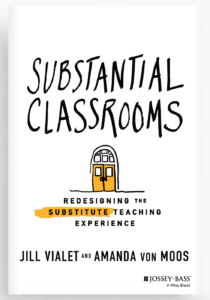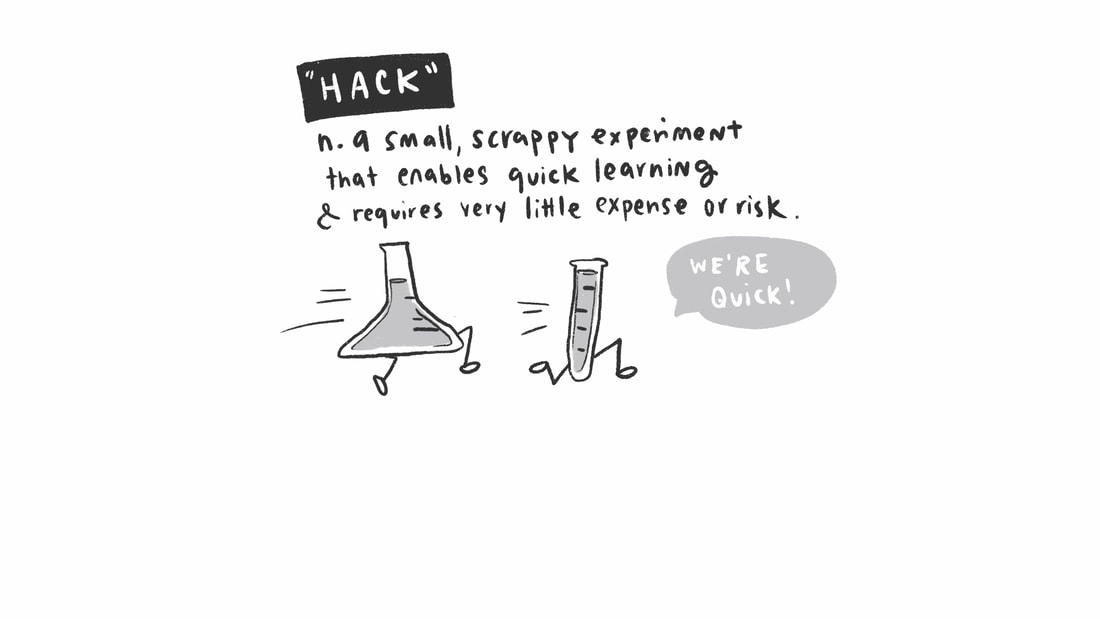 It has been a difficult few weeks, which is really saying something when you consider that we’re still “languishing,” as Adam Grant so eloquently described, in a pandemic that’s ending seems hard to pin down. Nonetheless, the mass shootings and the ruling in the Chauvin case have contributed to a greater-than-usual sense of unease and overwhelm. In the midst of this, the book I co-authored with my Substantial co-founder, Amanda von Moos, Substantial Classrooms: Redesigning the Substitute Teaching Experience was released. We wrote the book in the before-times, and it had originally been scheduled for publication this past summer, but Amanda and I convinced the publishers that absolutely no one was thinking about subs in that moment. People are, indeed, now thinking more about subs. As we consider re-opening, it seems likely that many places will face considerable teacher shortages. The pandemic has also laid bare the singular importance of connection in teaching and learning, and more specifically the extent to which teaching requires a blending of both instruction and the “custodial care” that we had previously managed to overlook, if not completely dismiss. The other thing about our book, though, is that it’s about design, and specifically bringing human-centered design to bear in working with entrenched, under-loved and often dysfunctional legacy systems. In this way, it is also a book for this complicated moment of unease and overwhelm. In looking at how we might redesign the substitute teaching system, our book endeavors to highlight the importance of being open to entirely new narratives, of redefining the problem itself, and radically reimagining what's possible. Along the lines of radical reimagining, I’ve found myself reading a lot of science fiction and fantasy over the past year. While it has been a great escape, inherent in the worldbuilding that these genres employ, is an approach that Leah Zaidi identifies as critical not only to science fiction, but also to foresight and design. This storytelling about plausible futures helps us to both imagine, and more importantly also to create, new visions for our society. I like to think that we have tried to bring a spirit of fantastic reimagining to the task of redesigning substitute teaching, and that it is precisely this level of fantastic reimagining that this moment requires. Luckily, science fiction thinking starts very much on Earth. Three grounded takeaways from the book that I believe apply to this larger collective need to reimagine a better future are: Start with a hack. One of the antidotes that Grant calls out to counteract languishing is the small win, which translates pretty directly into the design concept of a “hack” - a small, scrappy experiment that enables quick learning and requires very little expense or risk. Identify bright spots. Great things are already happening. By focusing on the positive deviants, and amplifying their stories, we point the way to even greater innovation. Lead with empathy. These entrenched, under-loved and dysfunctional systems we hope to shift are complex because they are human. Not losing sight of the fact that there are actual people behind both the challenges and innovations that are happening, and taking to understand them and what motivates them – uncovers essential truths that can help us imagine a better path forward.
1 Comment
Alycia Tumlin
4/23/2021 11:49:52 am
This speaks to me deeply. As we slowly emerge from this globally traumatic event, all of us, but especially our children, are suffering in millions of different ways. It is our responsibility to meet this moment with love and empathy and to help each other heal. So many of our school systems are simply broken, and we have to reimagine what is possible and build something new in order to really meet the need of the moment. I attended a Substantial training workshop years ago while managing substitute programs at Summit Public Schools, and felt like I’d finally found “my people”; everything you talked about that day was directly in line with my perspective, and I learned so much from that experience. As a former actress and drama teacher, it was also just a super fun day! And when I think about it I have fond memories and feelings. And if we can create those kinds of experiences for kids on those non normative days at school, we could help contribute to the universal healing we all need. Can’t wait to read the book. Congratulations on your success!
Reply
Leave a Reply. |
Jill's BlogPeople need meaning, the opportunity for mastery, and community to thrive. Creating opportunities for people to contribute, and to find their best selves is some of the most important work we can do. |
